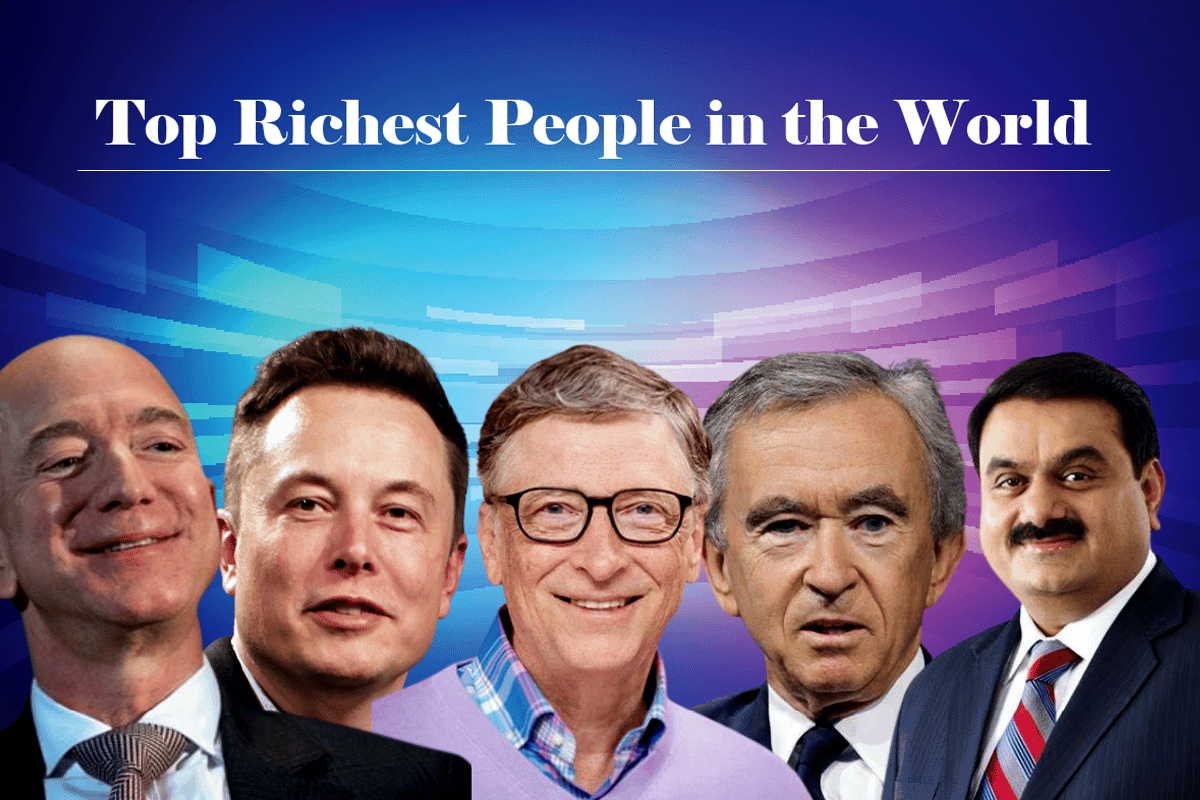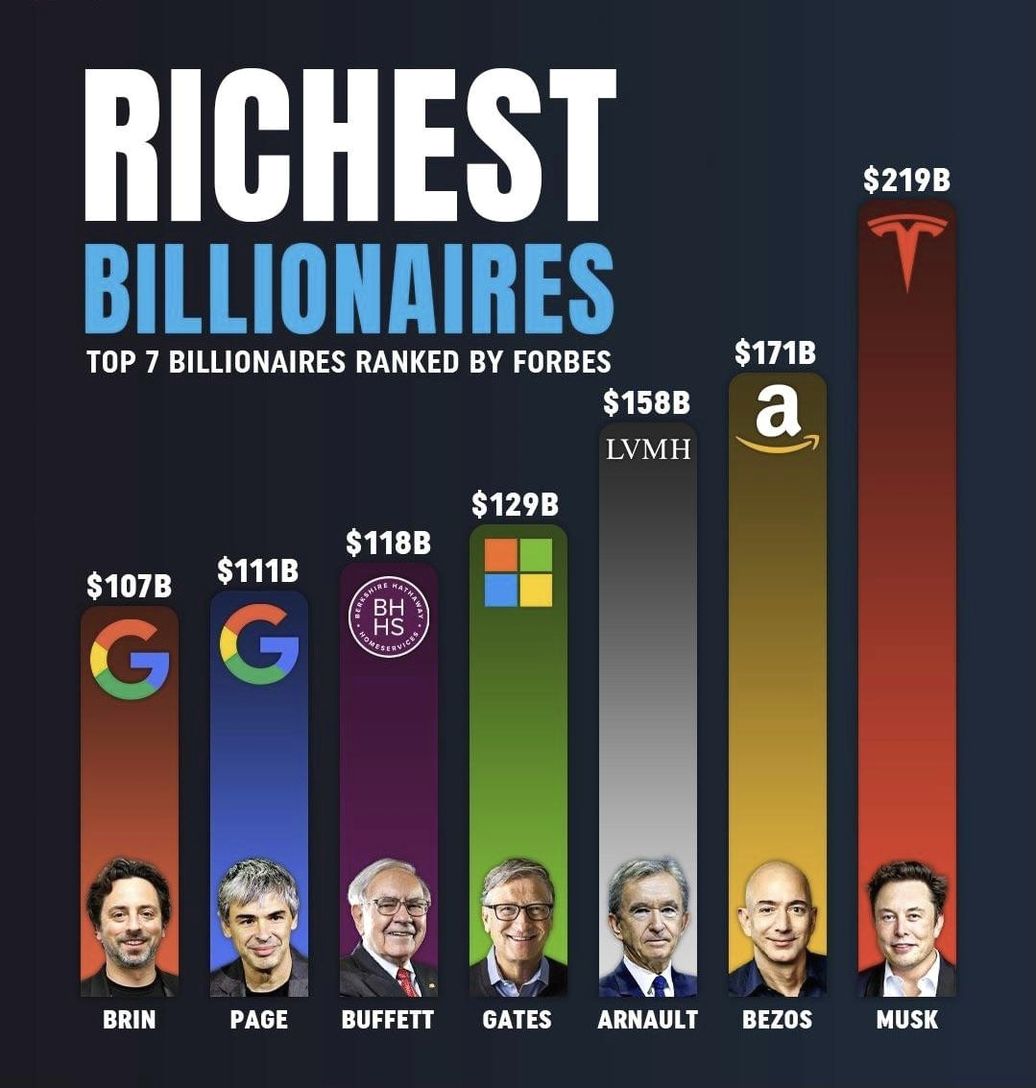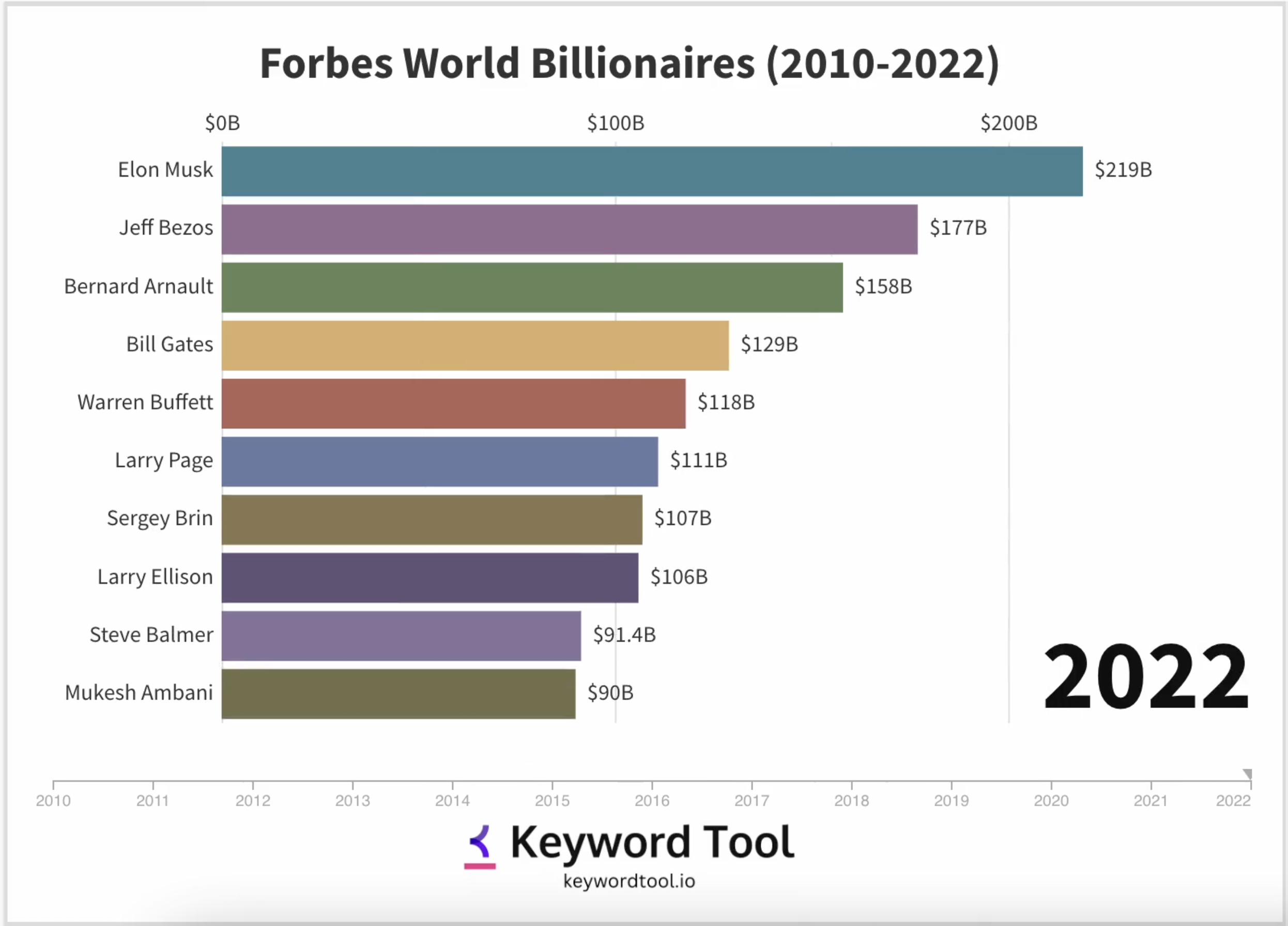Have you ever wondered about the wealthiest people on Earth? You know, the folks whose fortunes are tracked daily, like Elon Musk, who is that, as of July 1, 2025, still holds the top spot globally, or Larry Ellison, who, very impressively, overtook Mark Zuckerberg for second place. Our world, with its daily updated Bloomberg Billionaires Index, really does give us a pretty clear picture of who has what, tracking their net worth, their industries, and how those big global wealth rankings shift with every market move. It's a transparent system, more or less, where you can see the numbers, understand the calculations, and learn about their key investments, which is quite something, don't you think?
Now, imagine a place where none of that public tracking exists. A country where financial details are kept under incredibly tight wraps, and where the idea of a "billionaire index" just doesn't fit the picture at all. That's North Korea, a nation that, in some respects, operates very differently from the global financial stage we're used to observing. So, when we talk about the "richest North Korean," we're entering a realm of speculation, of whispers, and of educated guesses, because, quite frankly, there isn't a public ledger to check.
It's a fascinating question, though, isn't it? Who holds the most financial power in a country that is, by many accounts, one of the most isolated in the world? We can't just look up their profile page on a financial news site and find a detailed net worth analysis. The information just isn't there, not in the way we'd find it for someone like Elon Musk, whose wealth is tied to publicly traded companies like Tesla. This discussion, you know, really highlights the stark contrast between open economies and highly centralized, secretive states.
Table of Contents
- The Supreme Leader and His Family
- Kim Jong Un: A Profile in Power
- Sources of Unverifiable Wealth
- The Inner Circle and Their Privileges
- Why is This Information So Secretive?
- Contrasting North Korean Wealth with Global Rankings
- Conclusion: A Wealth of Questions
- Frequently Asked Questions (FAQ)
The Supreme Leader and His Family
When anyone ponders who the richest person in North Korea might be, one name, you know, naturally comes to mind: Kim Jong Un. He is the Supreme Leader, after all, and his family has been at the very top of the country's power structure for generations. It stands to reason that whoever controls the levers of power in such a tightly controlled state would also, more or less, control its financial resources. There are no public records, of course, that detail his personal fortune, but various reports and analyses from outside the country suggest that the Kim family has amassed a truly substantial amount of wealth over the decades.
This wealth, it's believed, is not just about personal bank accounts, but also about access to luxury goods, properties, and resources that are completely unavailable to the vast majority of the North Korean population. It’s a very different kind of wealth from what we see on the Bloomberg Billionaires Index, which, as I was saying, tracks publicly traded assets and investments. In North Korea, the wealth is tied directly to the state itself, and to the ability to direct its resources for personal or family benefit, which is quite a distinction.
The concept of "personal wealth" for the Kim family is, in a way, intertwined with the state's assets. It's not like they have stock portfolios or publicly declared businesses. Instead, their control over the country's economy and its various enterprises allows them to live a life of extreme privilege, which, arguably, makes them the wealthiest by default. This is a system where power and money are, very deeply, connected, and one cannot really exist without the other, it seems.
Kim Jong Un: A Profile in Power
While we can't provide a typical "net worth" table for Kim Jong Un like we would for a global billionaire, we can certainly outline his position and the general understanding of his influence. It's a different kind of profile, you know, focusing on power and control rather than financial statements.
| Detail | Information (Based on external reports and speculation) |
|---|---|
| Full Name | Kim Jong Un |
| Title | Supreme Leader of North Korea |
| Estimated Age | Early 40s (Born January 8, 1984) |
| Family Lineage | Third-generation leader of North Korea (Grandson of Kim Il Sung, Son of Kim Jong Il) |
| Known Assets (Speculative) | Luxury vehicles, private jets, yachts, multiple residences, art collections, high-end electronics, imported foods and beverages. These are often acquired through state funds or illicit means. |
| Source of "Wealth" | Control over state resources, revenue from state-controlled enterprises, illicit activities (e.g., arms sales, cybercrime, counterfeiting), foreign currency reserves. |
| Public Financial Disclosure | None (information is highly classified and not publicly available) |
| Estimated "Net Worth" (Highly Speculative) | Estimates from various sources have ranged from hundreds of millions to several billion US dollars, but these are, quite frankly, educated guesses and not verifiable figures. |
This table, you know, just gives you a sense of the kind of "wealth" we're talking about here. It's not wealth in the traditional sense of investments and market performance, but rather in the absolute control over a nation's resources and the ability to convert that control into personal luxury and power. It's a rather unique situation, wouldn't you say?
Sources of Unverifiable Wealth
Trying to pinpoint the exact sources of wealth for the North Korean elite, and particularly for the Kim family, is like trying to catch smoke, you know? It's incredibly difficult because everything is so hidden. However, experts and intelligence agencies have, over time, pieced together some likely avenues through which this wealth is generated and maintained. It's a fascinating, if somewhat troubling, picture that emerges, basically, from these analyses.
State-Controlled Enterprises
A significant portion of the country's economy is, quite obviously, controlled directly by the state. This includes everything from mining operations to manufacturing, and even some agricultural ventures. The profits generated from these enterprises, which in a normal country might go into public services or infrastructure, are, in North Korea, often diverted to fund the ruling elite. This isn't just about paying salaries; it's about providing luxury goods, maintaining lavish lifestyles, and securing loyalty among key figures. So, in a way, the entire economy serves as a personal piggy bank for those at the top, or so it seems.
These state-run businesses, you know, might engage in trade with other countries, bringing in foreign currency. That currency, instead of being distributed for the general welfare, can be funneled into special funds or used to acquire high-end items for the leadership. It's a system where the lines between state assets and personal assets are, shall we say, very blurry indeed, almost non-existent.
Illicit Activities
This is perhaps the most controversial, but also a widely reported, source of income for the North Korean regime and its leaders. Various international reports, you know, have suggested that the country engages in a range of illegal activities to generate foreign currency. These can include, but are not limited to, the counterfeiting of currency, the production and sale of illegal drugs, arms trafficking, and, more recently, sophisticated cybercrime operations like ransomware attacks and cryptocurrency theft. These activities are, quite frankly, a significant concern for global security.
The money generated from these illicit ventures, apparently, does not flow back into the general economy for the benefit of the populace. Instead, it is believed to be used to fund the country's weapons programs, particularly its nuclear and missile development, and to support the lavish lifestyles of the ruling elite. It's a stark contrast to how legitimate global wealth is accumulated, isn't it? This makes it nearly impossible to track, which, in a way, is the point.
Foreign Currency Generation
Beyond the more illicit methods, North Korea also, you know, generates foreign currency through a few other means. This includes sending workers abroad, whose wages are largely confiscated by the state, and engaging in legitimate, albeit often small-scale, trade with a few friendly nations. Tourism, though limited, also brings in some foreign cash. However, even these more "legitimate" sources are tightly controlled and the proceeds are, very often, directed to the leadership's special funds.
The system is designed, in essence, to centralize all incoming foreign currency under the direct control of the state, which then allows the leadership to decide how it's spent. This means that even if a small amount of legitimate trade occurs, the benefits are, basically, concentrated at the very top. It's a closed loop, in a way, that ensures resources remain with the powerful.
The Inner Circle and Their Privileges
While Kim Jong Un and his family are, undoubtedly, at the apex of wealth and power, they are not alone in benefiting from the system. There is, you know, an inner circle of high-ranking officials, military leaders, and party cadres who also enjoy significant privileges. These individuals, apparently, are granted access to better housing, imported goods, and opportunities that are completely out of reach for ordinary citizens. Their wealth, too, is not typically in the form of publicly declared assets, but rather in the form of access and preferential treatment.
These loyalists are, in some respects, rewarded for their unwavering support of the regime. They might receive luxury cars, special food rations, or even opportunities to travel abroad, which is a massive privilege in North Korea. Their wealth is, basically, a reflection of their proximity to power and their role in maintaining the existing order. It's a system of patronage, where loyalty is, very directly, compensated with material benefits, or so it seems.
However, even within this inner circle, there are strict hierarchies, and their fortunes are entirely dependent on the whims of the Supreme Leader. What is given can, quite suddenly, be taken away. This dynamic, you know, keeps everyone in line and ensures that ultimate financial control rests firmly with the Kim family. It's a delicate balance, in a way, that relies heavily on fear and absolute obedience.
Why is This Information So Secretive?
The extreme secrecy surrounding wealth in North Korea is, quite frankly, by design. There are several compelling reasons why the regime goes to such great lengths to hide the financial realities of its leaders and elite. One primary reason is to maintain the illusion of a unified, self-reliant state where everyone shares equally in the nation's struggles and triumphs. Publicly revealing the vast disparity in wealth would, very likely, undermine this narrative and could, in some respects, spark discontent among the general population, who often face severe economic hardship.
Another crucial reason, you know, is to avoid international scrutiny and sanctions. Many of the alleged sources of the regime's wealth, particularly those from illicit activities, are subject to international sanctions. If the true extent of this wealth, and how it is acquired, were to become public, it would, basically, invite even harsher penalties from the global community. So, secrecy is, in a way, a shield against external pressure and accountability.
Furthermore, keeping financial details hidden allows the leadership to maintain absolute control. When wealth is not transparent, it's easier to manipulate and use as a tool for political leverage. It allows the leadership to reward loyalty and punish dissent without public oversight. This opaque system, you know, reinforces the power structure and makes it incredibly difficult for outsiders, or even insiders, to challenge the status quo. It's a very effective method of control, apparently.
Contrasting North Korean Wealth with Global Rankings
It's fascinating to compare the concept of wealth in North Korea with how we track the richest people globally. Our text, you know, talks about the Bloomberg Billionaires Index, which is a daily ranking of the world’s richest people. This index updates their net worth daily based on stock market performance, economic conditions, and their publicly known investments. We can see, for example, that Elon Musk, CEO of Tesla, is still the richest person in the world as of July 1, 2025, a title he's held since May 2024. We can track his net worth, his industries, and how global wealth rankings shift with every market movement. This transparency, you know, allows for detailed net worth analysis on each billionaire’s profile page, which is quite informative.
Now, think about North Korea. There's no stock market, no publicly traded companies in the Western sense, and certainly no independent economic conditions that influence a leader's "net worth" in a transparent way. The wealth of the North Korean elite, particularly the Kim family, is not derived from market forces or successful entrepreneurship in a competitive global economy. Instead, it's rooted in political power, control over state resources, and, as we discussed, often illicit activities. There are no "key investments" that are publicly known or tracked, and no daily updates on their fortunes. This makes any comparison to the likes of Elon Musk or Larry Ellison, who, as I was saying, are openly ranked, almost meaningless in terms of how their wealth is acquired and maintained. It's a fundamentally different system, basically, entirely opaque and unverified.
The very definitions and notes that explain how global wealth is calculated simply don't apply to North Korea. The figures for the Kim family are, very much, estimates based on intelligence gathering and analysis of their spending habits and the known flow of funds into the country. It's a stark reminder that while some parts of the world operate with increasing financial transparency, others remain, in a way, completely shrouded in secrecy. This contrast, you know, really highlights the unique challenges in understanding wealth in a truly closed society.
Conclusion: A Wealth of Questions
So, who is the richest North Korean? While we can't point to a specific number or a publicly verified profile, the answer, you know, almost certainly lies with Kim Jong Un and his immediate family. Their wealth isn't measured in publicly traded stocks or transparent business ventures, but rather in their absolute control over the nation's resources, its economy, and its people. It's a power-based fortune, sustained by a tightly controlled system and, apparently, by various secretive means.
Unlike the global billionaires whose fortunes we track daily, like those on the Bloomberg Billionaires Index, the wealth of North Korea's elite remains a mystery, hidden behind layers of secrecy and state control. This lack of transparency, you know, serves to protect the regime from both internal dissent and international scrutiny. It means that while we can browse today’s rankings of the wealthiest people and families globally, and discover the net worth, age, and other information about the richest people in the world, the true financial picture of North Korea's leaders remains, in a way, elusive. To learn more about global wealth rankings on our site, you can certainly explore the fascinating world of publicly tracked fortunes. And if you're curious about how other nations manage their economies, you might want to check out this page on economic systems, which could be quite insightful.
Frequently Asked Questions (FAQ)
Q: Is there an official list of the richest people in North Korea?
A: No, you know, there isn't any official or publicly available list of the richest people in North Korea. The country operates under extreme secrecy, and financial information about its leaders and elite is not disclosed. Unlike global wealth rankings, there's no transparent system for tracking personal fortunes there, basically.
Q: How do experts estimate the wealth of the North Korean leader?
A: Experts and intelligence agencies, you know, typically estimate the wealth of the North Korean leader through various indirect methods. This includes analyzing the country's trade data, tracking luxury goods imports, monitoring alleged illicit activities, and observing the lifestyle of the elite. These are, very much, educated guesses rather than precise calculations, apparently.
Q: What are the main sources of wealth for the North Korean elite?
A: The main sources of wealth for the North Korean elite are, in some respects, derived from their control over state resources and enterprises. This includes revenue from legitimate trade, but also, very significantly, from illicit activities like arms sales, cybercrime, and counterfeiting. Funds generated are, basically, channeled to support the leadership and maintain their privileges, or so it seems.



Detail Author:
- Name : Evalyn Hills
- Username : dylan26
- Email : esmitham@gmail.com
- Birthdate : 1983-04-29
- Address : 535 Jarrod Lakes Elvieport, PA 26000-5212
- Phone : +1 (845) 945-3040
- Company : DuBuque, Rolfson and Klein
- Job : Extraction Worker
- Bio : Qui libero sit non. Quas illo aspernatur cupiditate cum eum dolores. Voluptatem dolores quasi nihil facilis ipsum aut fugiat dignissimos. Quis ratione dolorum ea ducimus deserunt voluptatem quae.
Socials
facebook:
- url : https://facebook.com/bergstrom1974
- username : bergstrom1974
- bio : Aliquam maxime optio ipsum. Odio et at occaecati autem et earum.
- followers : 2954
- following : 1499
instagram:
- url : https://instagram.com/icie6172
- username : icie6172
- bio : Rem mollitia laboriosam qui dolorum. Distinctio quia deserunt harum aut.
- followers : 4689
- following : 455
tiktok:
- url : https://tiktok.com/@icie_official
- username : icie_official
- bio : Eos rem cumque id in ut voluptatem. Ex sapiente aut beatae consequatur nihil.
- followers : 6680
- following : 1385